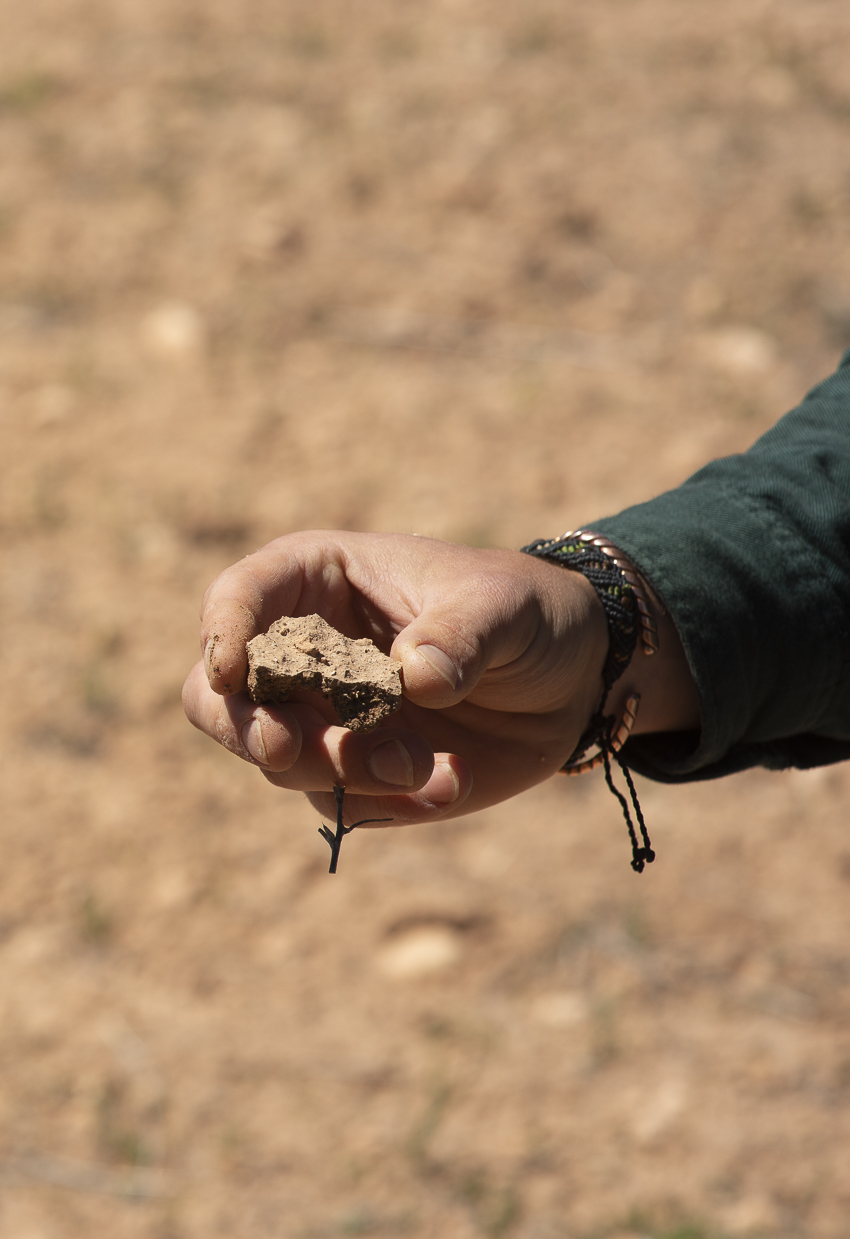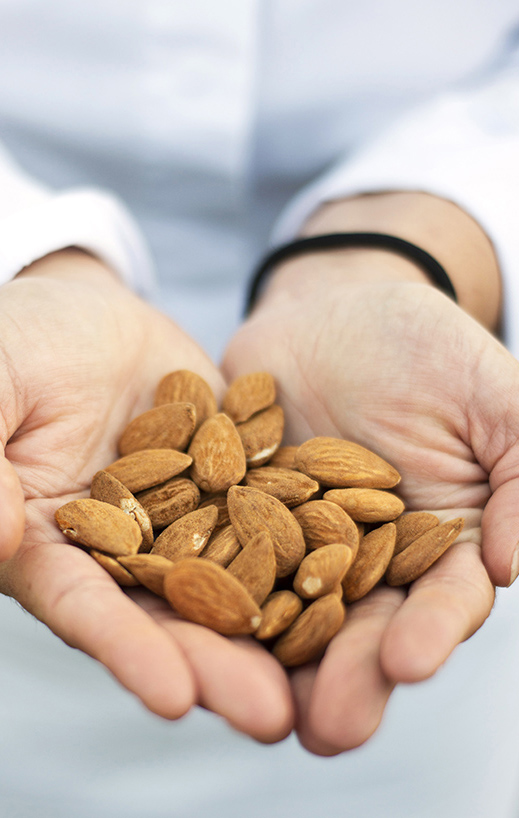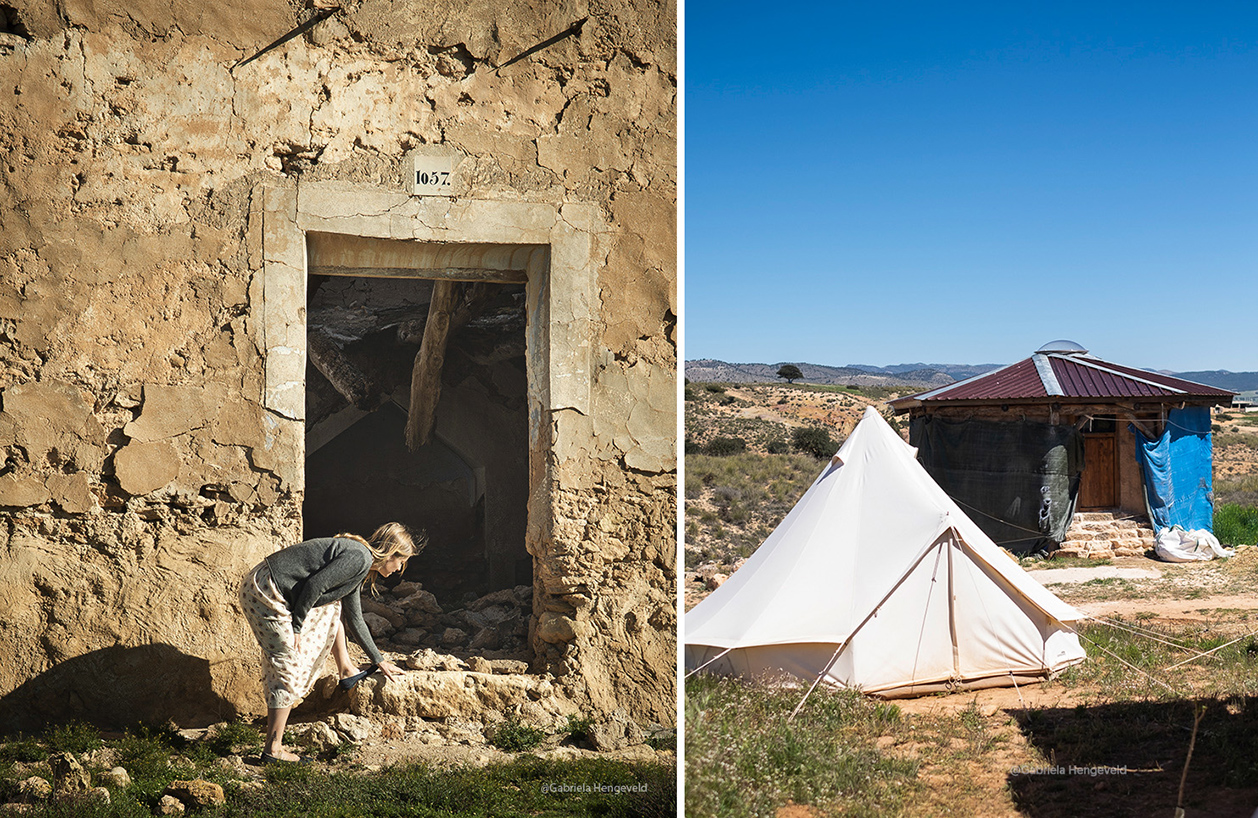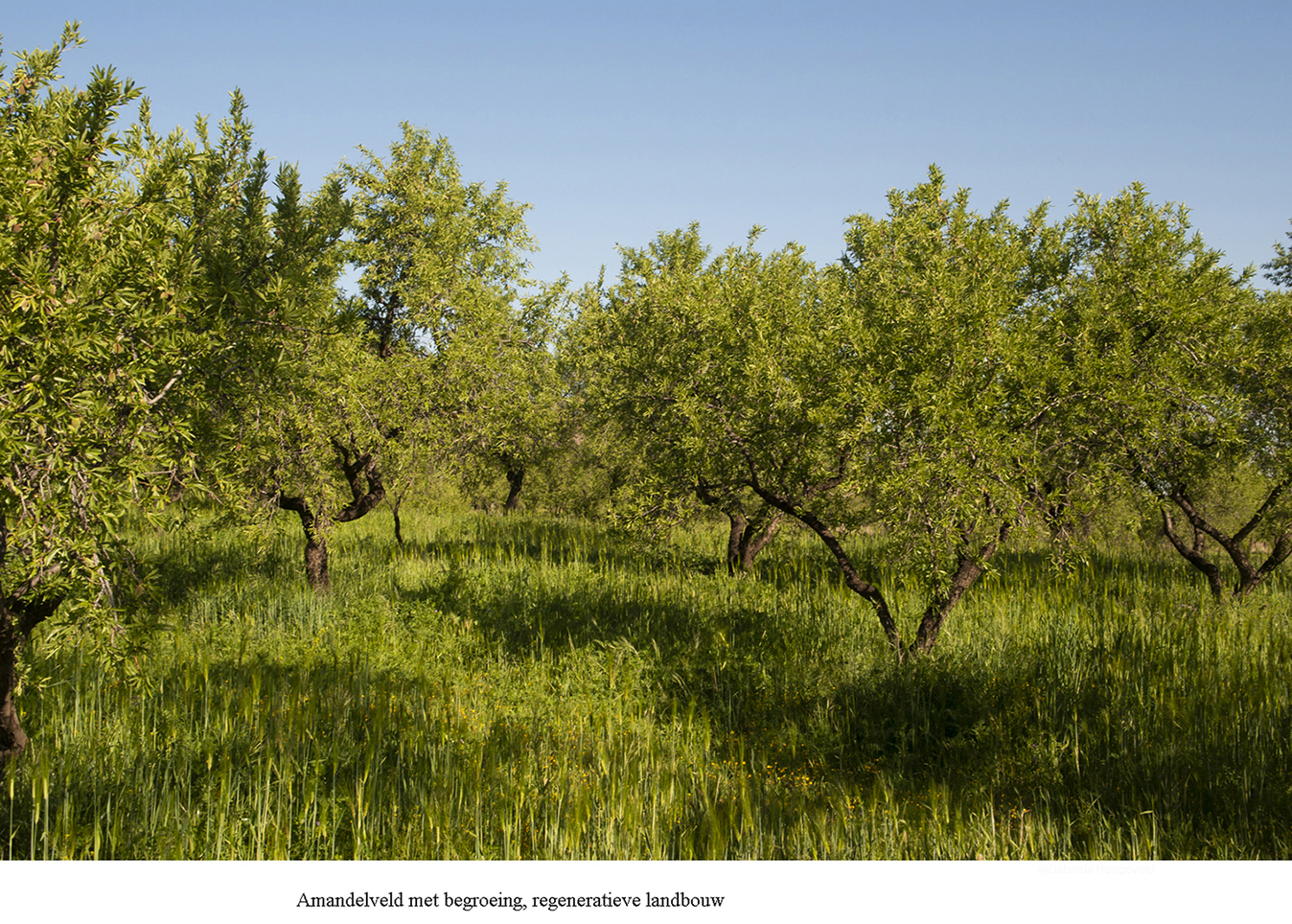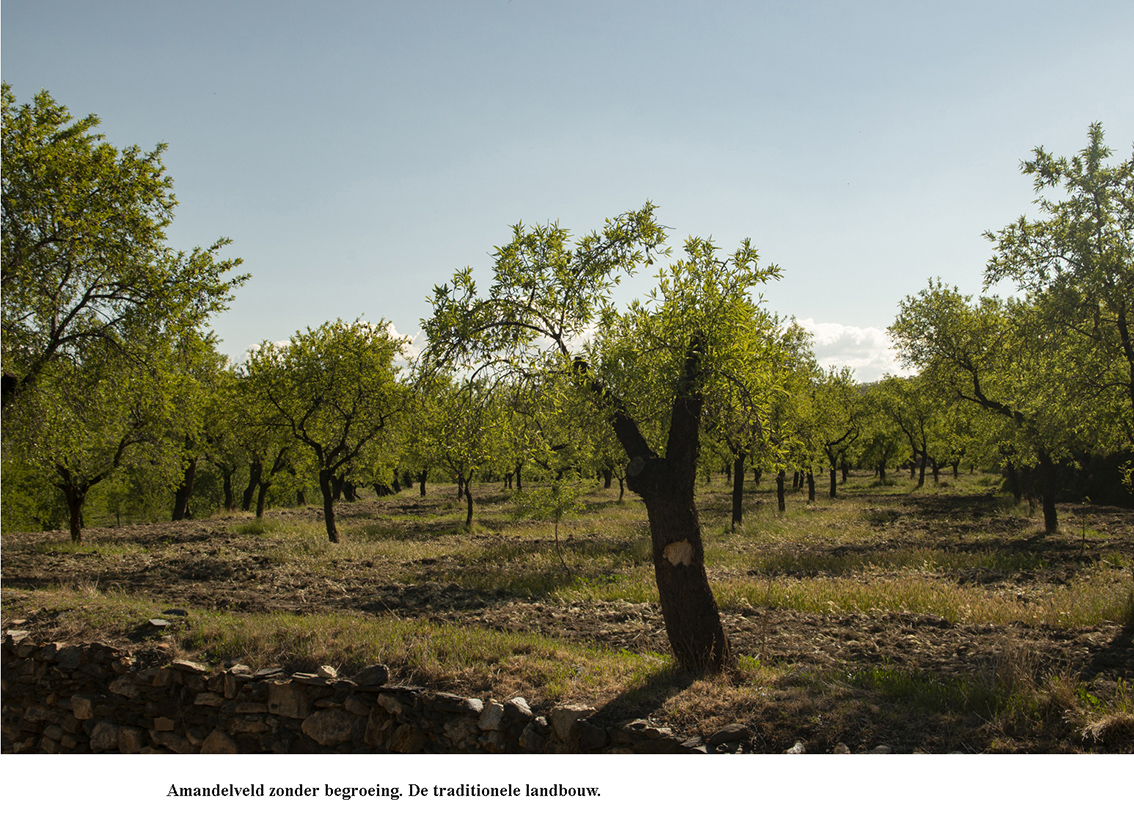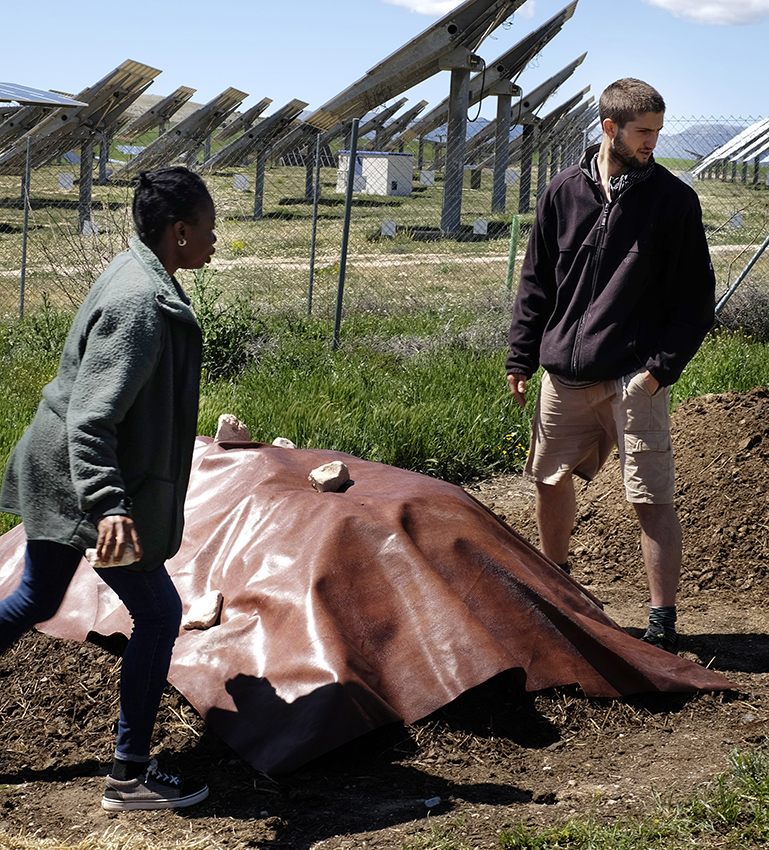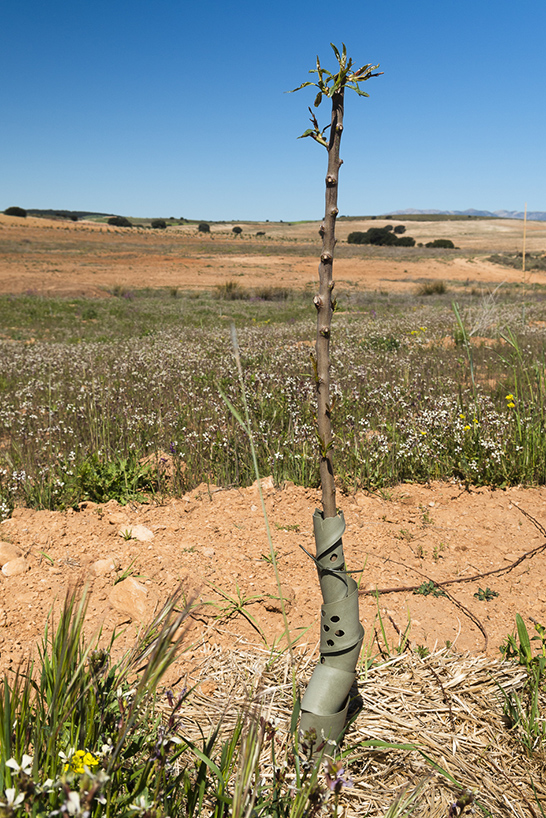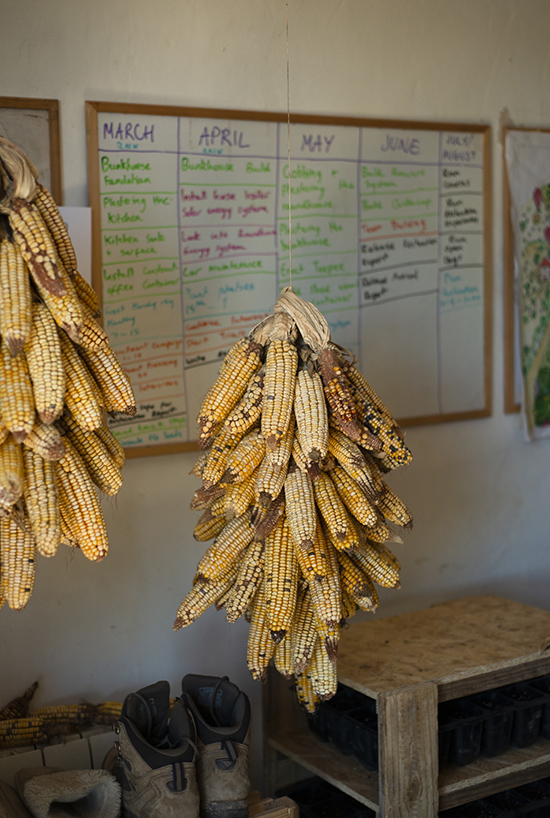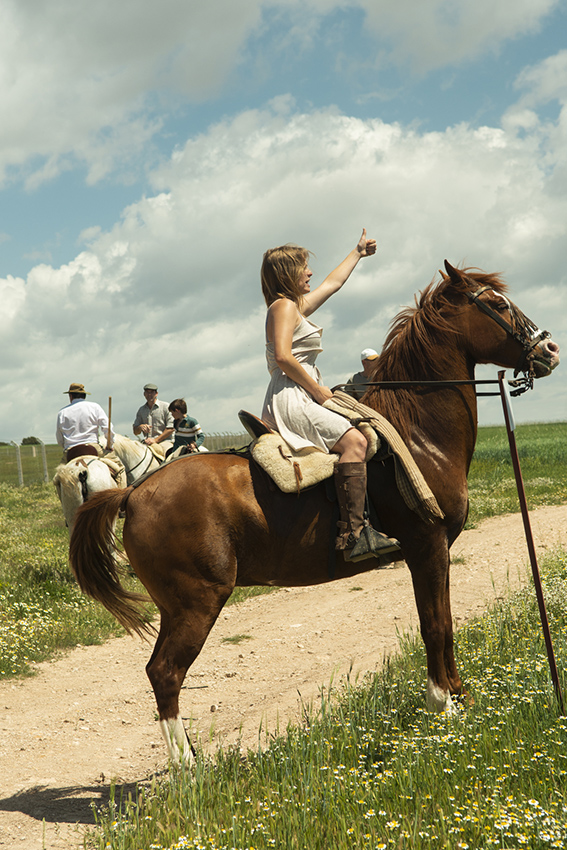Murcia, Spain
In the southern Spanish countryside you will find fields full of almond trees, but that's it.
No other plants, just almond trees.
Together with journalist Katja Keuchenius katjakeuchenius.nl I visited two young farmers who are implementing a different way of farming. Regenerative agriculture.
Yanniek and Alfonso run an eco-school and hectares of almonds fields in La Junquera.
Together with the foundation Commonland, a Dutch organization that is working worldwide on a more ecological approach to land and soil, they are developing a more diverse agriculture project.
On this Spanish plateau near Murcia, the foundation argues for more variation in vegetation and more channels and hedges on the fields so that the top layer of soil does not wash away or blow away quickly.
An important advice from Commonland is less use of heavy machinery. By plowing less with machines, small plants also grow between the almond trees, which is good for making the soil airy and water-permeable and for retaining the soil also when wind and rain suddenly hits it. Many traditional farmers think that pushing back large machines is a bizarre plan. How should they cultivate their huge plots of land? In this dry region, non-plowed plants would drink the water from the almond trees. Alfonso has been trying for a few years and indeed already encountered difficulties. Thousands of his almond trees once lost the battle for nutrients with the cover crop that he deliberately did not plow. This shows that switching is not that easy. Trying new technologies means risks that most farmers want to avoid. But they also realize the soil is drying out and that they can hardly live from their agriculture anymore.
4 Returns
That is precisely a reason for Commonland to change course. Now that the countryside is running out of water worldwide, the organization thinks it's time for a new morality. The so-called 4-returns model, explains Willem Ferwerda, director of Commonland. “Landowners worldwide now focus primarily on: maximizing profit per hectare. This is not realistic in the long term. Profit is needed to keep your business going and make new investments, but if you pull more and more out of the ecosystem, you end up going bankrupt."
In southern Spain, we saw how the Commonlands process of 4 returns is set in motion.
In addition to financial capital (1), healthy soil can also bring back strong social structures (2), a healthy ecology (3), and local pride and inspiration (4). commonland.com
Next to Finca La Junquera you can find the #Ecosystemrestorationcamps where regenerative agriculture is being put to practice. Students and scientist from all over the world come here to study, participate, practice and teach about the implementations of Regenerative agriculture.
We published several articles that appeared in FD magazine, Genoeg, Mo magazine, España &Mas, and Trouw.
https://www.mo.be/reportage/agrobosbouw-als-toekomst-voor-zuid-spaanse-platteland

